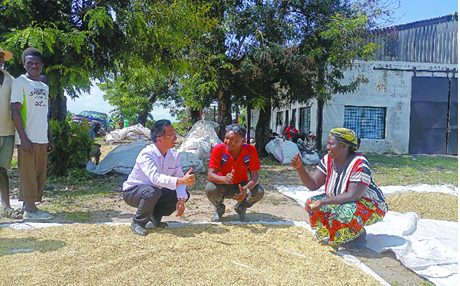
By Rana Irfan Rafi
Inflation is a big problem in Pakistan. It means that prices keep going up, and it’s making life hard for regular people. From buying groceries to paying for utilities, everything costs more and more each day. In Pakistan, inflation is hitting people hard, especially those who don’t have much money. Prices are going up, but people’s salaries are not keeping up. This means they can’t buy as much with their money as before, and life gets harder. Why is there no stability in price control? What is the reason, how can it be overcome, and what should be the mechanism that can help stabilize prices as per the situation and market? How the government and people can work together to solve this problem. The government plays a big role in managing the economy and keeping prices stable. But so far, their efforts haven’t been enough to fix inflation. They try things like changing money policies or making rules for businesses, but it hasn’t worked well. Plus, some traders and shops get away with charging too much or selling bad-quality stuff, which makes the problem worse.
As the government adopts my suggestion and launches the tajir dost tax scheme, just like the government should launch the” Consumer Dost Portal” which can help everyone deal with rising prices, to fight inflation, we need to work together and find new ways to help people. One cool idea is the Consumer Dost Portal. It should be like a friendly website where people can check prices, complain about unfair things, and learn about their rights. Let’s see how this portal can help.
The Consumer Dost Portal shows people the latest prices of things like food, utilities, clothes, etc. This helps them plan their shopping better and avoid overpaying. It’s like having a friend who tells you where to find the best deals.
If someone gets cheated or treated badly by a shop, they can complain on the portal. This complaint goes to the right people who can fix the problem. It’s like having a hotline to report bad behavior and get justice.
People can also share their experiences with shops and traders on the portal. This helps others decide where to shop and encourages businesses to be fair and honest. It’s like reading reviews before trying a new restaurant. This helps them make better choices and stand up for themselves in the market. It’s like having a personal coach who teaches you how to be a smart shopper.
The Consumer Dost Portal can make a big difference for everyone. By showing prices, handling complaints, and providing education, it helps people deal with inflation better. Plus, it makes businesses more honest and fair, which helps the economy grow. But for the portal to work well, the government and people need to support it and make sure it’s used properly. The implementation of the Consumer Dost Portal holds the potential to yield significant benefits for both consumers and the broader economy. By promoting transparency and accountability in the market, the portal helps mitigate inflationary pressures and fosters a more competitive and efficient trading environment. Moreover, by empowering consumers with information and resources, it enhances their purchasing power and strengthens their ability to navigate the complexities of the market. Ultimately, the success of the portal hinges on robust enforcement mechanisms, stakeholder engagement, and sustained government support.
Launching a consumer dost portal in Pakistan faces numerous challenges, including inadequate technological infrastructure, the digital divide, and linguistic diversity. Ensuring data accuracy, regulatory compliance, and securing funding pose additional hurdles. Overcoming these challenges requires inclusive approaches, stakeholder collaboration, and sustainable funding models. To tackle infrastructure limitations, investments in internet connectivity and digital literacy programs are necessary. Bridging the digital divide involves providing access to smartphones and computers, particularly in rural areas, and offering the portal in multiple languages. Implementing strict data verification processes, adhering to consumer protection laws, and establishing partnerships with government agencies are essential for regulatory compliance. Effective promotion campaigns and user-friendly interfaces can enhance adoption rates, while transparent communication addresses concern about privacy and reliability, fostering trust among users.
Inflation and price instability pose formidable challenges to Pakistan’s economy and society, undermining the well-being of millions of citizens. However, by embracing consumer-friendly initiatives such as the Consumer Dost Portal, Pakistan has the opportunity to transform its market dynamics and empower its citizens. It is imperative for the government, civil society, and private sector to collaborate effectively in implementing and sustaining these initiatives, thereby paving the way for a more equitable and prosperous future for all Pakistanis.
The author is associated with SDPI (Sustainable Development Policy Institute) as project assistant and can be contacted at irfanrafi@sdpi.org tweeter@ranaskt11












